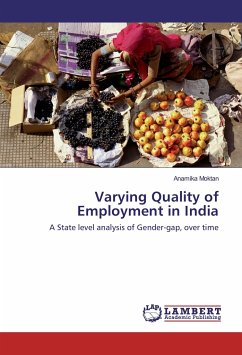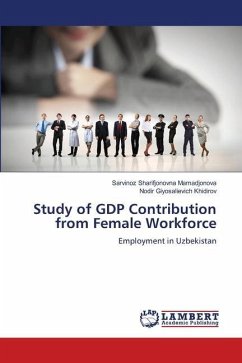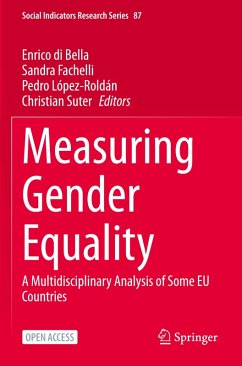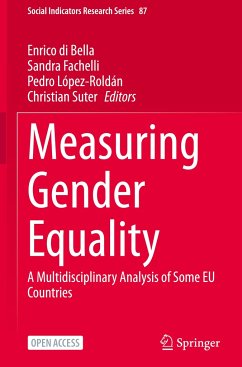
Varying Quality of Employment in India
A State level analysis of Gender-gap, over time
Versandkostenfrei!
Versandfertig in 6-10 Tagen
24,99 €
inkl. MwSt.

PAYBACK Punkte
12 °P sammeln!
Majority of the workers in India are working as informal workers. Moreover overtime the share of informalization and casualization has been increasing. Besides,the gender bias can be seen in employment earnings, places of works, industry groups, etc. To mention the women workers are majorly engaged in those sub sectors of informal sector where the productivity is less. This book tries to measure the extent of deficit in the quality of employment with the help of dimension and indicators prepared by International Labour Organisation to measure decent work. This book mainly focuses on the inequa...
Majority of the workers in India are working as informal workers. Moreover overtime the share of informalization and casualization has been increasing. Besides,the gender bias can be seen in employment earnings, places of works, industry groups, etc. To mention the women workers are majorly engaged in those sub sectors of informal sector where the productivity is less. This book tries to measure the extent of deficit in the quality of employment with the help of dimension and indicators prepared by International Labour Organisation to measure decent work. This book mainly focuses on the inequalities in the quality of employment across states and gender in the rural and urban areas in India and the trends overtime. This book deals with the important dimensions of the quality of employment such as the Social Security and Social Dialogue or the voice of the workers. The book also tries to find out whether there is relation between economic growth and the quality of employment.












